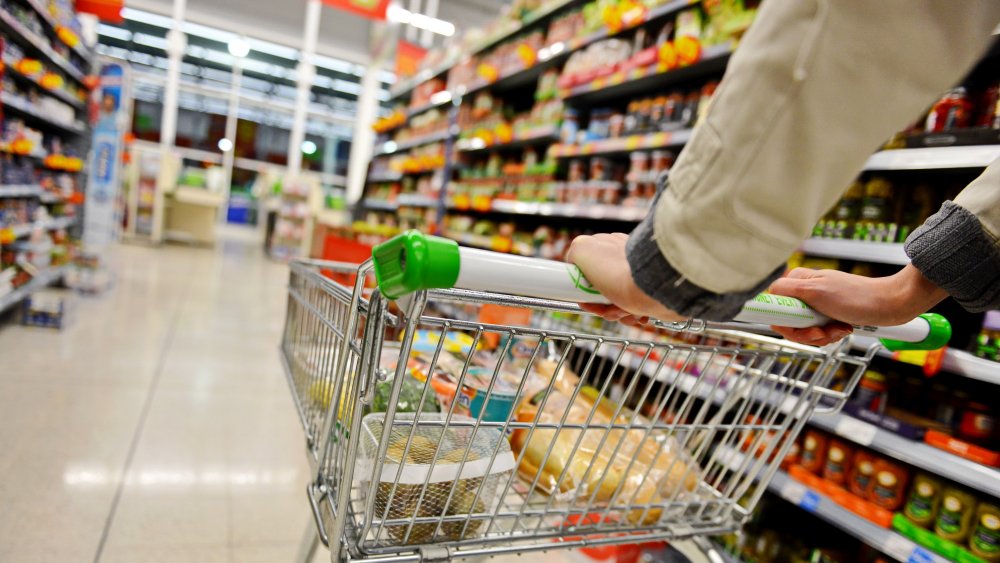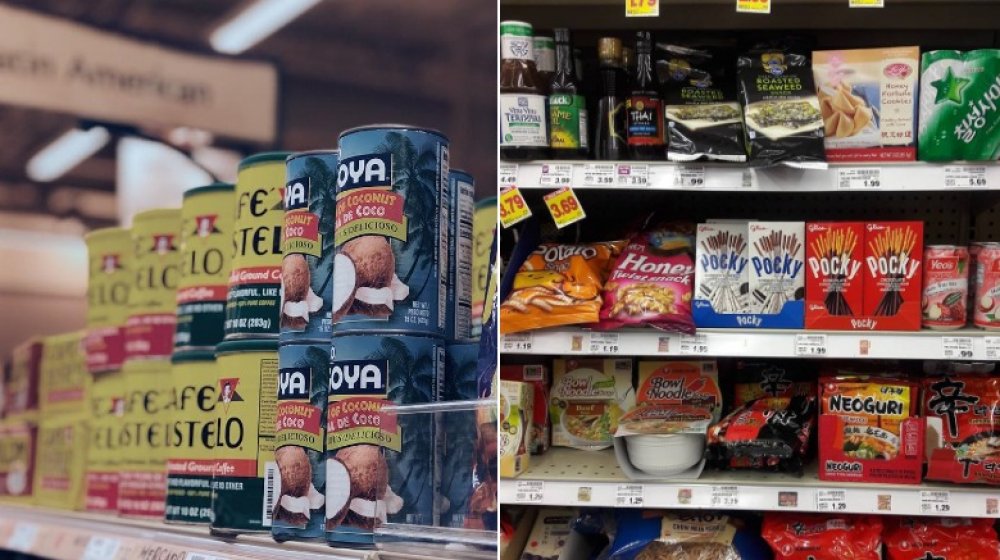The Real Reason The 'Ethnic Aisle' Might Disappear From Grocery Stores
At the beginning of the COVID-19 pandemic, when United States' supermarkets resembeled sets from an episode of the Walking Dead, one Redditor started a thread. "After being sent on a grocery run last night, I check the 'regular' canned food aisle... the aisle was looted and left for dead," wrote the Redditor. In the "Hispanic aisle," however the Redditor reported that "nearly all canned products are marked down 20 percent due to overstock". The thread urged shoppers to "always walk to the ethnic aisles" when products in other parts of the supermarket were depleted. Other users agreed, "This is how I snagged a bag of rice last week" said one, and "dried pinto beans were wiped out, but the 'Hispanic' section had several bags" confirmed another. "Regular canned vegetables section was wiped clean but right across the aisle was a fully stocked section of what I guess you could call Soul Food canned vegetables" attested a third.
Ethnic aisles may have been a saving grace for shoppers during the beginning of the coronavirus pandemic, but (per Business Insider) millennials are increasingly rejecting them. Part of that has to do with the fact that so-called "ethnic aisles" (sometimes labeled "Hispanic" or "Asian") are as a concept nonsensical. Celebrity chef David Chang pointed out to the Washinton Post that American cuisine is as much of a melting pot as our demography. "All the foods in the ethnic food aisle are already accepted. So why do we even have them?" Chang asked.
Some feel "ethnic" supermarket aisles reinforce inequality
It's not only about the fact that designating small sections of a supermarket to certain "ethnic" foods make "ethnic food companies" compete for shelf space (via Business Insider), it's also that (if Reddit is anything to go by) these spaces seem less-traversed than other parts of the supermarket. Those two phenomena are likely symptoms of something else. We'll hand the mic to food studies professor Krishnendu Ray, who told Business Insider that "for some people, classifying things as 'ethnic' sounds a bit like using 'Negro' or 'Oriental' today." Ray's analysis is mirrored by another Redditor's lived experience, "I have to figure out whether what I want to eat is not-white enough to be in the not-white food section which is more often than not far far away from the white foods" they wrote.
That's what makes "ethnic aisles" feel, to some, like a kind of "separate but equal" policy, asserts The Washington Post. Like the "separate but equal" policies that once instituted a system of (in fact very unequal) segregation in public schools, when we separate "ethnic products" from "regular products" (for example distinguishing between "canned vegetables" and "Soul Food canned vegetables") we create spatial reminders that some groups of people and their cuisines don't belong everywhere in the supermarket. For David Chang, growing up shopping in "ethnic aisles" was a visceral reminder that he and his family were "never going to be accepted" in "white America".

